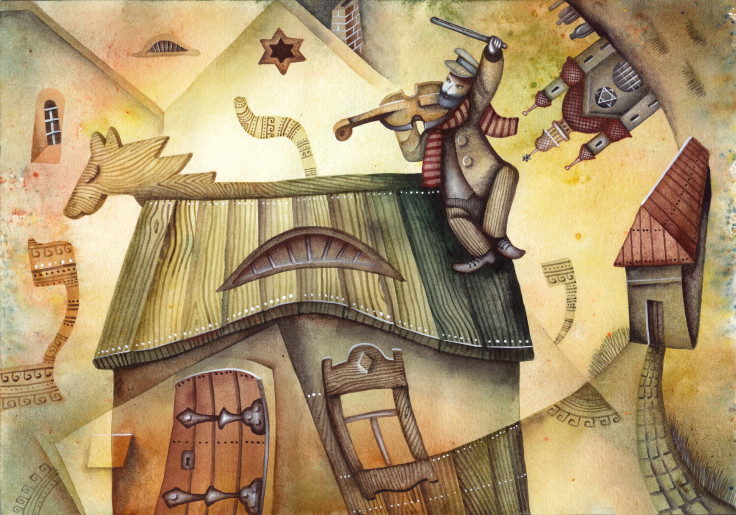Psychology Behind Tradition And Social Taboos: Humans Fear Punishment, Are Willing To Copy Others

There’s an entire song devoted to it in Fiddler on the Roof, and it has defined thousands of generations of human survival and culture. Tradition: It can make life rich (big ethnic holiday feasts) and sometimes limited (seemingly arbitrary social taboos about clothing), but where does it stem from?
New research out of Karolinska Institutet’s Emotion Lab in Sweden attempts to answer that question, by creating a psychological model behind the notion of tradition. It turns out that humans have a tendency to be quite sheep-like: the researchers found that it likely comes from a threat of punishment — as well as people’s willingness to copy others.
“Critically, many social behaviors, such as cooperation and adherence to religious taboos, are maintained by threat of punishment,” the authors wrote. “However, the psychological mechanisms allowing threat of punishment to generate such behaviors, even when actual punishment is rare or absent, are largely unknown.”
In the study, researchers completed four experiments involving 120 participants. In the first, the participants had to choose between two pictures (A and B) on a screen 20 times. If they chose the wrong answer, they were told, they would receive an electric shock (which they had felt beforehand); however, no electric shocks were given at all. Instead, participants watched a video in which a person chose picture A each time — and over 95 percent of the participants ended up choosing A every time as well.
When the participants were promised a reward (like movie tickets) they followed the person in the video only 60 percent of the time. And in the case of an arbitrary punishment, meaning punishment for no reason, participants followed the footsteps of people in the video below 70 percent. In the fourth experiment, the researchers found that future participants were more likely to choose answer A if they saw videos of the past participants choosing the same answer. Therefore, the “passing down” of traditions may be based on avoiding danger and punishment.
“Our conclusion is that when we are promised a reward, we are more inclined to break the pattern, and social learning tends to play a smaller role,” Andreas Olsson, a researcher at the Department of Clinical Neuroscience at Karolinska Institutet said. “But when it comes to avoiding danger, social learning has a powerful influence on our behavior when it is proved to yield good results. But in cases where social learning is shown not to offer effective protection from danger, we are also more inclined to break the pattern.”
In other words, people who adhere to tradition often due so for safety and survival. But people who see that tradition doesn’t offer protection from danger are more likely to break out of it.
“We wanted to find out how these situations function in humans when we need to avoid danger,” said Björn Lindström, a researcher at the Department of Clinical Neuroscience and an author of the study. “We discovered that two separate, simple, psychological mechanisms — the copying of others behavior and the rewarding properties of avoiding danger together forms a potent driving force that helps explain how we can create and maintain norms and traditions.”
This is certainly a unique view of tradition. While not all traditions are bad — keeping your grandparents’ ethnic rituals of holiday celebrations and language intact can maintain diversity in our world — some traditions can actually cause harm to humanity and go against basic human rights, according to Human Rights Watch.
“In countries around the world, Human Rights Watch has documented how discriminatory elements of traditions and customs have impeded, rather than enhanced, people’s social, political, civil, cultural, and economic writes,” Graeme Reid writes.
Indeed, perhaps this research will offer a glimpse into what really creates tradition — and for us to better understand whether it offers genuine value to humanity or is only based in fear, punishment, and arbitrary taboos.
Source: Lindström B, Olsson A. Mechanisms of Social Avoidance Learning Can Explain the Emergence of Adaptive and Arbitrary Behavioral Traditions in Humans. Journal of Experimental Psychology. 2015.
Published by Medicaldaily.com



























